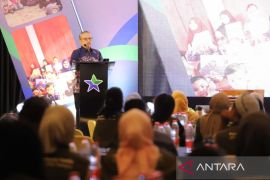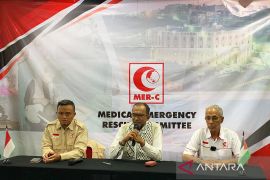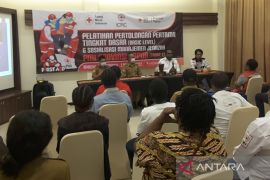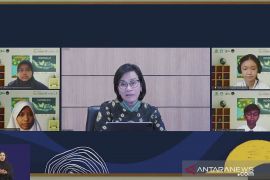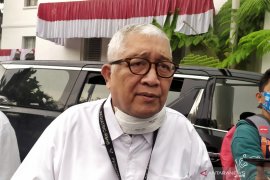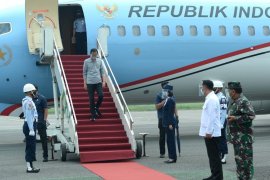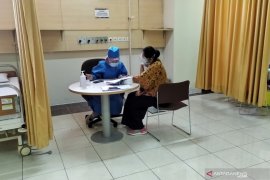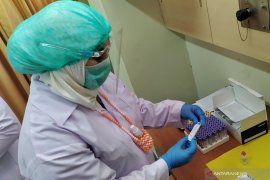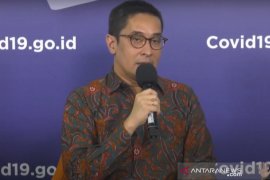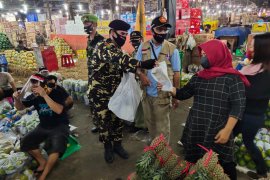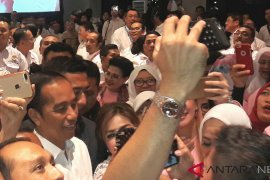As a volunteer, the Paramadina University student worked at the logistics section, where she was responsible for assisting the media and providing them the information they required, especially foreign reporters who rented out a space in the Media Center.
As her main duty was to cater to the needs of guests, she often had to come up with her own initiatives, sometimes involving her personal finances, so that the committee did not receive any complaints from them.
There was one time, she recalled, when a Korean reporter asked for a water gallon, while the committee only provided water dispensers in the room rented.
"They needed the water dispenser there at the time and there was no one there to make a decision since I was on my own," she said.
On her own initiative, she went out of the Gelora Bung Karno Complex to find mineral water gallons.
Along with her fellow volunteer, Pauline, she never calculated her working hours.
In theory, my working hours should not have exceeded eight hours, but I often had to work overtime to complete the tasks I had been given," she continued.
Although she often worked past the hours assigned to her, she still did it wholeheartedly.
"I did not understand the procedure regarding working overtime, but I was happy to work there because I was participating toward making history," he said.
Hanjani Putri who volunteered at the boxing arena in JIExpo Kemayoran, Jakarta, also shared her own experience.
The Padjajaran University student was shocked when a photographer snapped at her after being told to move away from the place he was previously assigned.
"There was also a foreign official who made it seem like he did not understand English when he was told that he was not allowed to record the match, but he kept on recording; it did not matter how many times I told him," she said.
In addition to volunteers on duty indoors, such as the Media Press Center and the competition arena, the experience that was not any less exhausting, both mentally and physically, was in the transportation section, as experienced by Herlita Aprizia and her partner Ade Irvan Suryana.
The two, who were working at the bus stop in front of Istora Senayan, did not seem to care about the heat.
"If I could choose, of course, I would choose a comfortable area with an air conditioner," said Herlita.
However, Herlita and Ade Irvan admitted that they were still eager to carry out their duties because for them, the most important thing was to get valuable experience as volunteers and feel the euphoria of the Asian Games.
Thanks to their assignment as volunteers, Ade Irvan and Herlita witnessed the differences between Indonesians and foreign guests.
"I preferred attending to foreign guests because they were easy to cooperate with, unlike our own citizens who often complained and wanted everything to be done quickly," she said.
The good outweighed the bad
The volunteers who were carrying out their duties, both at the GBK Complex and at JIExpo Kemayoran, generally stated that they experienced more pleasant occurrences rather than upsetting ones.
As stated by Tubagus Fakhri Kurnia, a student of Jendral Sudirman University, Purwokerto, serving as a volunteer made him feel like he was part of history, as defined by the Asian Games volunteer motto "Be A Part of History".
"One of the advantages was that I made new friends, acquired new knowledge from the media sector, and become a part of the Asian Games, although it did cost me some time with my family as I was constantly working, and it is a physically exhausting job," Tubagus said.
Astri Rahmalia, a resident of Bekasi who was also studying at Soedirman University, admitted that all the bad experiences she had suffered during the assignment were outweighed by the good ones.
"I came across many millennials, especially people younger than me who were smart and caring, and love Indonesian people," she said.
Fatigue, late night working hours and the lack of rest experienced by the volunteers were lauded by the government of DKI Jakarta through the award presented by DKI Jakarta Governor Anies Baswedan.
He said that the Asian Games volunteers included those who worked backstage and played an important role in the success of the second largest global sports event after the Olympics.
Through his Facebook account, Baswedan said that the majority of volunteers were young people from various regions throughout Indonesia. They were not paid, but worked wholeheartedly because of their love for Indonesia.
"After the Asian Games, the volunteers will go home with pride because they were part of the devotion for the nation and the country. Once again, we thank you and appreciate you very much," he added.
Reporting by Atman Ahdiat
Reporter: Aria Cindyara
Editor: Suharto
Copyright © ANTARA 2018
